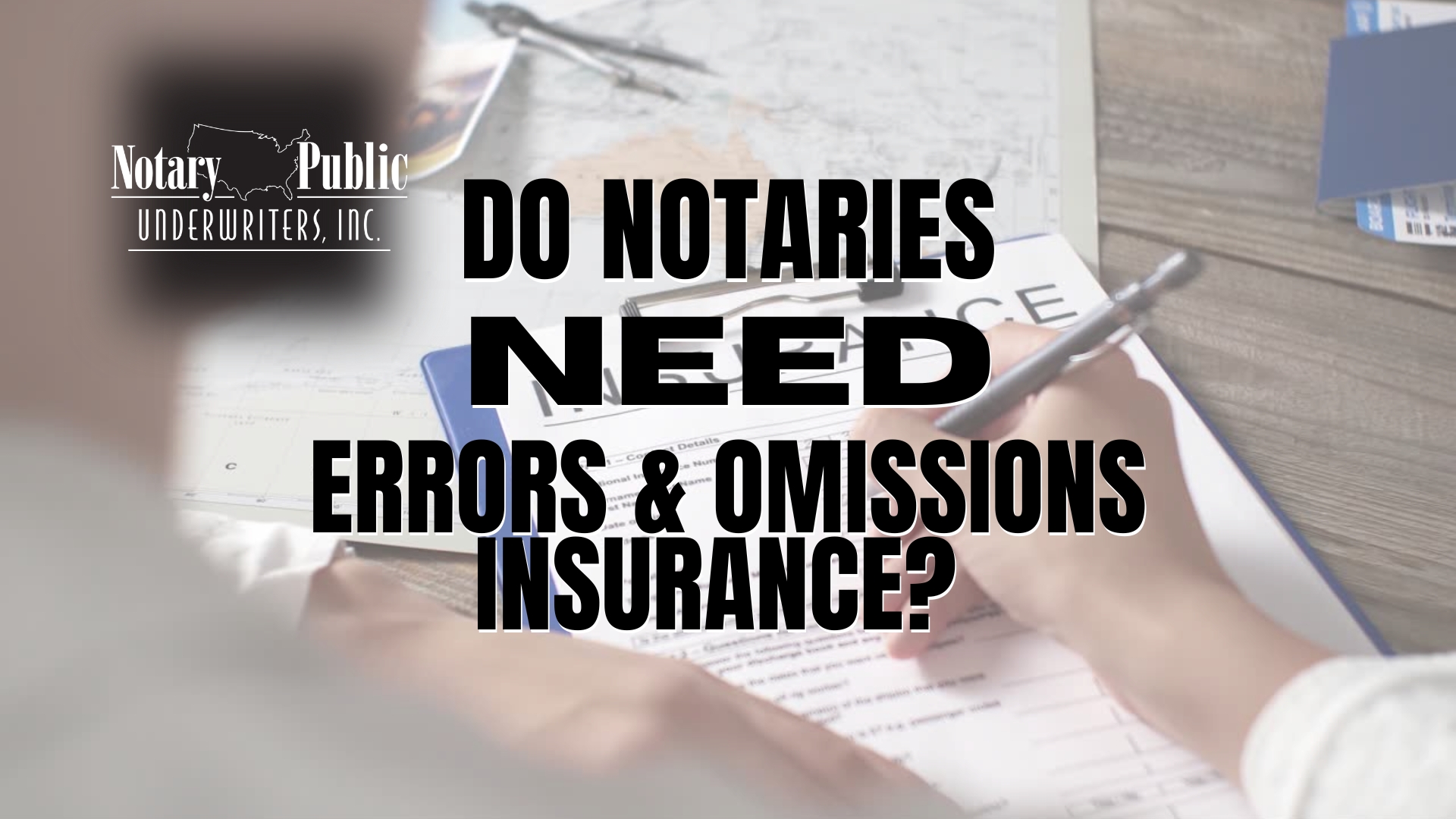Notary Public Underwriters Blog
Do Notaries Need E&O Insurance? The Truth Every Notary Should Know
- Details
- Published: November 24, 2025

When becoming a notary public, you’ll hear a lot about bonds, supplies, and Errors & Omissions (E&O) insurance. But what exactly is notary E&O insurance, and do you really need it? Let’s uncover the truth.
What Is Notary E&O Insurance?
Errors & Omissions (E&O) insurance is a type of professional liability coverage designed to protect you as a notary public if a mistake or unintentional oversight leads to financial loss for your client. Unlike your notary bond—which protects the public—E&O insurance is designed to protect you up to the amount of your chosen policy.
Is Notary E&O Insurance Required by Law?
No. Notary E&O insurance is not required by law in any state. What is required, in most states, is a notary bond. The bond ensures that if you make an error or commit misconduct, the injured party has a financial remedy. However, if a claim is paid out on your bond, you are personally responsible for reimbursing the bonding company.
E&O insurance, on the other hand, shields you from having to pay those costs out of pocket.
Can A Notary Work Without Notary E&O Insurance?
Technically, yes—you can function as a notary without E&O insurance. But here’s the reality: even the most careful notary can make a mistake, and lawsuits can happen even when you did everything correctly. Without E&O insurance, you may find yourself paying legal fees and damages on your own.
Think of E&O insurance as your financial safety net.
Why Are There Different Policy Limits?
You’ll notice that E&O insurance comes with different coverage amounts, usually ranging from $10,000 to $100,000. These limits determine how much the insurance company will pay for a claim.
The right amount for you depends on:
- The volume of notarizations you perform – High-volume notaries may want higher coverage.
- The type of documents you handle – Real estate, business contracts, and financial documents often carry higher risks.
- Your peace of mind – Some notaries choose larger policies simply to feel more secure.
Why Notary E&O Insurance Matters
At the end of the day, E&O insurance is about protecting your finances and your future. While it isn’t legally required, it’s a wise investment for notaries who want complete protection against the unexpected.
The Bottom Line
Your notary bond protects the public. E&O insurance protects you. Without it, one small mistake—or even a claim you had no control over—could cost you thousands. With it, you can notarize with confidence, knowing you’re covered.
Click the image to watch our YouTube video below
Related Article(s)
Test Your Notary Knowledge: Take Our Notary Quiz!
Customer Expectations Versus Notarization Requirements
Fighting Fraud: Why Notaries Should Avoid Using Signature Stamps
Tips to Protect Your Notary Stamp and Journal
How to Get More Notary Business Part 1: Optimize Your Marketing
How to Avoid Common Mistakes During a Notarization
When Can a Notary Use Personal Knowledge to Identify a Signer?
Does a Notary Need to See the Entire Document When Notarizing?
Can a Notary Correct a Mistake on the Notarial Certificate?
Notary FAQs: Essential Answers for Everyday Scenarios
Top Ten Mistakes That Notaries Make
Can a Notary Notarize a Family Member's Signature?

